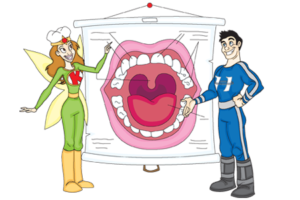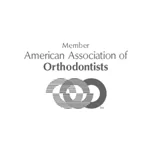Educational Articles & Videos
The Super Dentists empower you with knowledge. We believe that all parents want to do the best for their children. These dental articles help to ensure that parents have the knowledge they need to make well-informed decisions about their children’s dental health as well as their own. children. These dental articles help to ensure that parents have the knowledge they need to make well-informed decisions about their children’s dental health.
The Super Dentists are serious about dental patient education. Some of the most important decisions you’ll make as a patient – and parent – involve dental care for you and your family. Our dental patient education materials are designed to empower you with the knowledge to make the right decision – the first time, every time. Along with our comprehensive dental services, The Super Dentists also offer transparent, totally accessible dental patient educational resources.
This portal provides plenty of dental information for patients. But if you can find exactly what you’re looking for, please contact The Super Dentists directly by phone at 1 (855) GO SUPER, or by text message at 1 (844) 765—1234. Our goal is to provide accessible, informative dental information for patients whenever they need it. Don’t hesitate to contact us today.
Dental Patient Education – The First Step in Getting Superior Dental Care
The Super Dentists are San Diego’s #1 pediatric and adult dentistry. One reason we’re so popular is because we always put the patient first. And a big part of this patient-first concept involves dental patient education. Our Frequently Asked Questions (FAQ) page lists some of the most commonly asked questions from our patients, along with our answers.
Below, you’ll find a categorized collection of our main services, which increases overall dental patient education. From dental hygiene patient education to dental patient education materials, this page brings together informative resources, helpful articles, how-to advice, and much more. It’s all part of our effort to make every patient more knowledgeable about our services – including you!
Dental Patient Education Materials & Hygiene Information
Browse below for more information on everything from dental hygiene patient education, daily dental care tips & tricks, general info, 24/7 emergency services, braces for kids, teeth & gum care advice, and much more.
The Super Dentists are here to help educate and enlighten you on your journey to exceptional oral health! If you have any questions about our services, or you need more dental patient education information, please send a text message to 1 (844) 765—1234, or call us at 1 (855) GO SUPER. You’re always welcome to come visit our dental care professionals in person! We have six convenient locations to serve you, and you’ll find additional dental patient education information at all of our greater San Diego facilities. Click here for a list of our area offices.
Thanks for visiting The Super Dentists. We’re happy to get you the dental patient education you need – contact us today!
Business and After Hours Dental Emergencies
TEXT 1-844-765-1234
Please call the following phone numbers.
Leave a message with your name, call back number and message.
PEDIATRIC DENTISTRY (All Offices) (619) 790-1023 or (619) 790-1024
PARENT DENTISTRY (All Offices): (619) 818-3367
ORTHODONTICS (All Offices): (619) 432-0069







